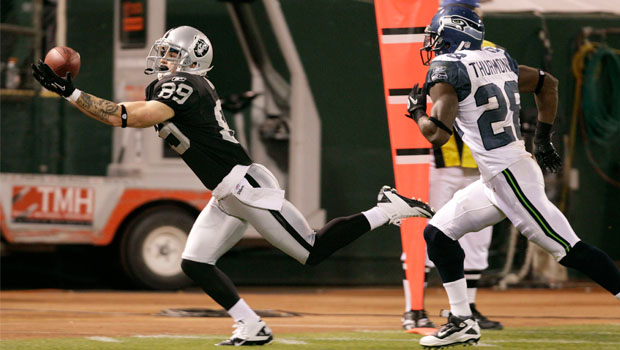Martin Snedden, who joined Rugby New Zealand 2011 in 2007, had said about a year after he took the job he was unsure if a small economy like New Zealand would be able to afford to host further global events after rugby's showcase and the 2015 cricket World Cup, which it is co-hosting with Australia.
Organizers of next year's World Cup are still projecting an operating loss of NZ$39 million ($27.82 million), which will be underwritten by the government and the New Zealand Rugby Union.
"I am starting to think that if we do a really good job with this, then it just might be something which helps any later aspirations of hosting (other events)," Snedden told Reuters ahead of the one-year countdown to the start of next year's Sept. 9-Oct. 23 tournament.
"Everyone knows we are running this tournament at a loss and we are still on target for that.
"What people are coming around to understand is that if we use the hosting as a catalyst for other things we can benefit from, then ultimately that really becomes a $39 million investment rather than a loss.
"If New Zealand can achieve some obvious tangible benefits out of hosting the tournament then the government will be predisposed to hosting other events, but that's all for the future.
"It's my job to make sure that we knuckle down and do it right then we can go from there." The former lawyer, who was also the chief executive of New Zealand Cricket from 2001-2007, said the progress of the tournament organization was where it should be and he felt there was little to worry about as it approached one year to go.
"We are on track and we have got enough time for whatever we need to do from this point on," he said. "One of our objectives is to give people confidence that it's in the right place.
"We're not ready yet, but we don't have to be. All the foundations that have to be ready now, are ready, and it's just a matter of keeping on working on those and getting it through to the finished product."
In Bloemfontein, South Africa, after a disappointing Tri-Nations campaign, South Africa need to start planning their run-up to the World Cup and decide whether to rest senior players, captain John Smit said on Friday.
"It's always tricky deciding when to rest players and it's very difficult to rest a whole group of players; it's something you need to do on an individual basis," said Smit, who has faced criticism that he is tired and out of condition from playing too much rugby.
"We haven't spent too much time on it; we've had a pretty disappointing time in the Tri-Nations so that's what we've been focusing on.
"But we'll do some planning in the next couple of weeks, plotting our road to the World Cup," Smit, a veteran of 101 tests, told a news conference.
South Africa, who face Australia in their final Tri-Nations fixture on Saturday after four defeats in their five previous games, tour Britain and Ireland in November and December.
"The fact that it is a Grand Slam tour does complicate matters; you're not going to give that up easily," said Smit.
Springbok coach Peter de Villiers supports a scientific approach to the management of his players' workloads and the South African Rugby Union's (SARU) medical advisors have already said the senior members of the squad need to be rested if they are to be fresh for next year's World Cup in New Zealand.
Professor Tim Noakes, a leading South African sports scientist who was a member of the management team for the triumphant 2007 World Cup campaign, told the City Press newspaper recently that a heavy workload was probably partly responsible for the Springboks' poor Tri-Nations performance.
"The players appeared to be emotionally and physically drained. They were sluggish and this is either because they are too old, too unfit or they are tired. I hope someone makes the correct diagnosis of which one it is," Noakes said.
"If a player is over-stressed, they can't run as fast, although they may cover the same distance. It's speed they lose, so they can't get around the field as well." Noakes said his research had shown that the threshold for game time was between 1,400 and 1,600 minutes before players needed a rest; Smit has totted up nearly 2,000 minutes this season, including the Super 14.










